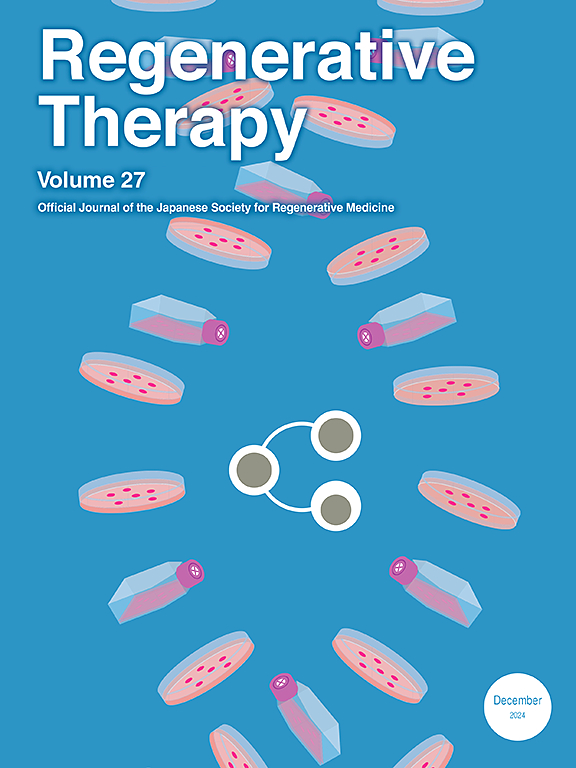Fabrication of Piezo1 protein encapsulated pressure-sensitive multifunctional hydrogel in modulating cellular response and wound healing in pressure ulcer conditions
IF 3.5
3区 环境科学与生态学
Q3 CELL & TISSUE ENGINEERING
引用次数: 0
Abstract
Pressure ulcers (PUs) are prevalent skin lesions characterized by significant morbidity, susceptibility to infection, and a complex healing process. This study aims at the synthesis of piezo1 protein-encapsulated, pressure-sensitive multifunctional hydrogel to modulate cellular response and promote wound healing in PUW conditions. The hydrogel synthesized from carboxyl methyl cellulose hydrogel exhibits the optimal swelling ratio and is found to have a high storage modulus (G′). This shows the mechanical strength and viscoelastic nature of the synthesized hydrogel. The PP encapsulation and releasing efficiency has been analyzed, and this proves the prolonged activation of mechanotransduction properties. In vitro analysis on 3T3 and HUVEC proves a high proliferation rate and proves to have an enhanced cell migration rate in hypoxia-induced cell lines. The angiogenesis was also found to be increased, which is indicated by tube formation that enhances the wound healing rate. The pressure ulcer animal model was analyzed for 3, 7, 10, and 14 days, and the wound healing rate. The reduction in inflammatory cytokine expression and the collagen deposition rate has been analyzed. By day 14, the wound closure reached above 91%, significantly higher than the untreated group. These findings demonstrate that PP-MH enhances cell proliferation and angiogenesis, thereby acts as a promising strategy for advanced pressure ulcer management.
Piezo1蛋白包封压敏多功能水凝胶在压疮条件下调节细胞反应和伤口愈合的制备
压疮是一种常见的皮肤病变,其特点是发病率高,易感染,愈合过程复杂。本研究旨在合成piezo1蛋白包封的压力敏感多功能水凝胶,以调节PUW条件下的细胞反应并促进伤口愈合。由羧甲基纤维素水凝胶合成的水凝胶具有最佳的溶胀比和较高的储存模量(G′)。这表明了合成的水凝胶的机械强度和粘弹性。分析了聚丙烯的包封和释放效率,证明了其机械转导特性的长时间激活。体外分析3T3和HUVEC在缺氧诱导的细胞系中具有较高的增殖率和增强的细胞迁移率。血管新生也被发现增加,这表明通过管的形成,提高了伤口愈合的速度。观察压疮动物模型3、7、10、14 d的创面愈合情况。分析了炎症细胞因子表达和胶原沉积率的降低。第14天,创面愈合率达91%以上,显著高于未治疗组。这些发现表明,PP-MH可促进细胞增殖和血管生成,因此可作为晚期压疮治疗的一种有希望的策略。
本文章由计算机程序翻译,如有差异,请以英文原文为准。
求助全文
约1分钟内获得全文
求助全文
来源期刊

Regenerative Therapy
Engineering-Biomedical Engineering
CiteScore
6.00
自引率
2.30%
发文量
106
审稿时长
49 days
期刊介绍:
Regenerative Therapy is the official peer-reviewed online journal of the Japanese Society for Regenerative Medicine.
Regenerative Therapy is a multidisciplinary journal that publishes original articles and reviews of basic research, clinical translation, industrial development, and regulatory issues focusing on stem cell biology, tissue engineering, and regenerative medicine.
 求助内容:
求助内容: 应助结果提醒方式:
应助结果提醒方式:


